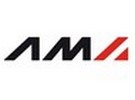Almost 9% of the fresh food retail products (LEH) are organic products. The highest percentage is recorded with regard to eggs. An average of 148 euros a year is spent on organic fresh produce. Almost every Austrian buys organic food at least once a year.
Organic is still very popular among consumers. Compared to 2017, the volumes purchased increased by 7.4% and the value of these purchases increased by 6.7%. "Organic products are one of the engines in the traditional food retailing industry," says Michael Blass, Managing Director of AMA Marketing, about the current RollAMA figures. Sales of organic products have increased by 50% since 2013. This corresponds to a five times higher growth than conventionally produced foods.148 euros per household for organic
In 2018, an average Austrian household bought organic fresh products worth 148 euros in the food retail. Almost every Austrian consumes organic food at least once a year, with a customer reach of 96.5%. Both the purchasing frequency and the purchased amount of organic products increased steadily.
Retail is the most important source of organic food
The most important source of organic food is classic food retail. Most of the organic products are bought in the supermarket. Purchases at the discounter and directly from the source are in 2nd and 3rd place.
Fourth highest share of organic in Europe
The organic share of all RollAMA product groups is currently just under 9%. By country comparison, in 2017 Austria ranked fourth in the European ranking. Only Denmark, Sweden and Switzerland had slightly higher organic market shares.
The highest organic content in the domestic food retailing sector is the assortment of eggs and milk, which continues to grow at a quick pace. Also far above average are potatoes, fresh vegetables and yoghurt. Every tenth product in the categories butter, cheese and fruit comes from organic farming. The proportion of meat and poultry as well as sausage and ham is below average. "There is potential for growth here," says the AMA Managing Director.
Communicating the national organic labels
AMA also sees more work to be done communicating the official organic labels to the public. The green EU organic logo, which must be present on all packaged organic food stuffs within the EU, is known by one third of the respondents, and the AMA organic label by every second person. The latter is a seal of approval for organic food. It may be appropriate in addition to the EU organic logo, if during production higher quality standards are upheld voluntarily than those required by EU Organic Regulations. In addition, the red-white-red AMA organic label with AUSTRIA as source indication guarantees the origin of the raw materials as well as their processing in Austria.
"We want to inform the consumers that the unambiguous recognition of organic food is very easy If the word 'organic' is on the packaging or the green EU organic logo is visible, you can be sure that you are holding an organic food in your hands. "The AMA organic label as an additive indicates a particularly high product quality", explains Barbara Köcher-Schulz, organic marketing manager of the AMA.
Brand promise: natural and of high quality
Export successes will prove how well organic and Austria go together. "Austrian food is also associated with particular naturalness and high quality beyond our borders, and this positioning is particularly harmonious for organic food," says the expert.
Austria exports a wide range of organic foods, including dairy products, cheese specialties, pork and pork Beef. The demand for wine, juices and oils from organic production is also growing. Organic fruits, vegetables, eggs and cereals from Austria are sold all over the world. "Especially in the dairy sector, our producers generate more than the demand on the domestic market, export is an important pillar, especially as the large organic sales markets in Europe are growing strongly." These products generate sales of more than 10 billion in Germany. Euro, in France almost 8 billion Euro ", Köcher-Schulz looks beyond Austria.
Austria at the BIOFACH
Red-white-red producers are therefore relying on a strong presence at BIOFACH in Nuremberg, the most important leading organic trade fair worldwide. 57 manufacturers are involved in the Austrian group exhibition in Hall 1, 60 other producers present themselves in the subject-related exhibition rooms. A total of 2,900 exhibitors and more than 50,000 trade visitors are expected. BIOFACH will take place from 13 to 16 February 2019.
For more information:
AMA-Marketing
DI Manuela Schürr
Tel.-Nr. +43/50 3151-401
Phone: +43/664/83 76 178
E-Mail: manuela.schuerr@amainfo.at
